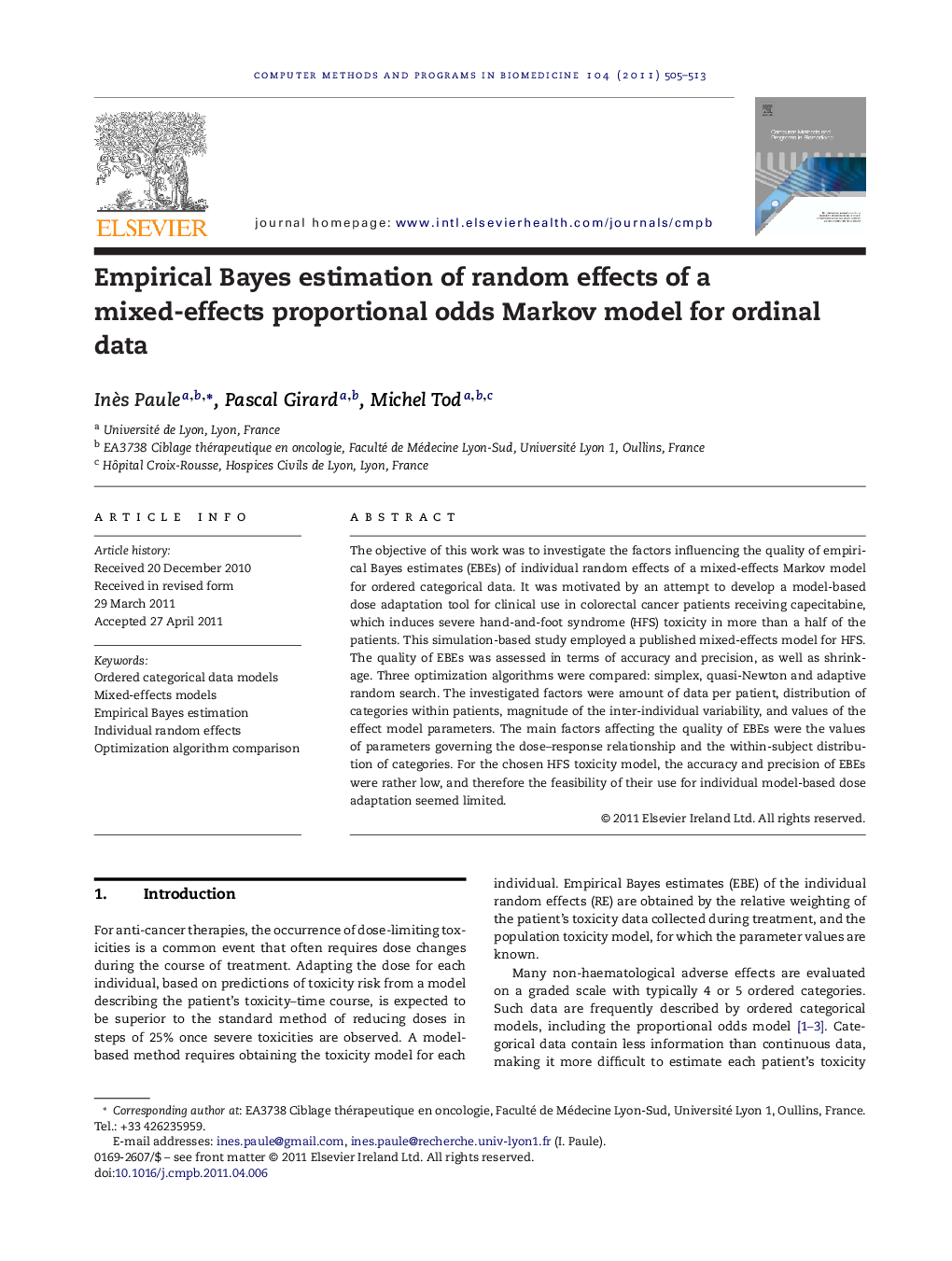| Article ID | Journal | Published Year | Pages | File Type |
|---|---|---|---|---|
| 466847 | Computer Methods and Programs in Biomedicine | 2011 | 9 Pages |
The objective of this work was to investigate the factors influencing the quality of empirical Bayes estimates (EBEs) of individual random effects of a mixed-effects Markov model for ordered categorical data. It was motivated by an attempt to develop a model-based dose adaptation tool for clinical use in colorectal cancer patients receiving capecitabine, which induces severe hand-and-foot syndrome (HFS) toxicity in more than a half of the patients. This simulation-based study employed a published mixed-effects model for HFS. The quality of EBEs was assessed in terms of accuracy and precision, as well as shrinkage. Three optimization algorithms were compared: simplex, quasi-Newton and adaptive random search. The investigated factors were amount of data per patient, distribution of categories within patients, magnitude of the inter-individual variability, and values of the effect model parameters. The main factors affecting the quality of EBEs were the values of parameters governing the dose–response relationship and the within-subject distribution of categories. For the chosen HFS toxicity model, the accuracy and precision of EBEs were rather low, and therefore the feasibility of their use for individual model-based dose adaptation seemed limited.
